#the uk is not innocent
Text
It's not lost on me that UK media are consistently calling these riots 'protests', even as the rioters are ripping up people's walls and gravestones to chuck bricks at everyone and everything
Meanwhile, they'll happily give unquestioned airtime to those who demonise anti-genocide protests as 'hate marches', and any time Black people rise up against the police, it's most definitely just another 'riot'🙃
131 notes
·
View notes
Text
Time for our regular reminder to people from New England that our native dialect’s charming slang for a small liquor store is a racial slur in the rest of the English speaking world.
Yes I know we don’t mean it that way. Yes I know we have no idea. Yes I know that people from Pakistan hardly ever visit New England let alone settle there, and it is 💯 innocently meant in New England.
It is extraordinarily unfair that the racial connotations of keeping a small corner shop means that it unintentionally doubles the impact of the slur.
It’s wicked uncool but there you go and now you know.
#package stores#New England#I first discovered this in 2010 thankfully just before moving to the UK#when dr glass was like hello you call them what???????#but it’s one of the few New England dialect words that really stick#and with very few immigrants from that region to that region#like if you’re going to emigrate you might as well go somewhere more pleasant without weather that kills you on every season#you can go your whole New England life not knowing#I know it’s innocent and I’m not the boss of slurs but I hope this helps!
354 notes
·
View notes
Text
Mmmm I just love icing 🤤 👅 do you lick the spoon after baking too? 😋
#cute redhead#hot red head#long red hair#red head#red hair#ginger girl#hot ginger#ginger#tongue#sexy mouth#beautiful lips#uk girl#pale girl#innocent girl#daddy's good girl
175 notes
·
View notes
Text
ive come to realise that i dont actually hate kubokai, i just hate the way people write them
#sorry i read like two cute in character kubokai fics and im enjoying it now#theyre cute and im a closeted shun kinnie so. obviously i will ship him with my crush from the show.#i just really really REALLY hate the super cliche seme uke dynamic people usually give them#those people have NEVER watched the show.. my boy shun is NOT like that#its sooo stereotypical and they obviously give shun the role of 'the girl' in the relationship which is. um. ew#'shun is so fragile and innocent and uwu and he needs big strong aren around at all times to coddle him'#'and aren has a soft spot for shun and shun only and only shun can stop him from being totally murderous and dumb'#do yall know that one scene from the kissing booth#where elle is like 'NOAH! LOOK AT ME! THIS ISNT YOU! LOOK AT ME' when hes about to beat the shit outta his brother#thats how kubokai gets written usually#'aren pwease nevew fight again🥺pwease? fow me?'#me reading anything kaido says in most fics: HE WOULD NOT FUCKING SAY THAT#sorry#people can write whatever they want its just. so ooc.#canon them is soooo bromance core#im sorry idk why im posting negative shit again when i like JUST said i wasnt going to do this anymore LMAO#not a callout post about anyone on here obvi- actually reading more recent fics from people on here is whats gotten me more into them#saiki k#tdlosk#the disastrous life of saiki k.#kuboyasu aren#kaido shun#kubokai#meows post
174 notes
·
View notes
Text

I am little comfort to myself, although I am the only comfort I have, excepting perhaps streets, clouds, the sun, the faces and voices of kids and the aged, and similar accidents of beauty, innocence, truth and loneliness.
-- William Saroyan
(London)
#loneliness#streets#truth#william saroyan#travel photography#london#england#uk#quote#innocence#street photography#comfort
108 notes
·
View notes
Text
FUCK. THE. TORIES.
They have refused to increase wages whilst forcing the cost of living to skyrocket so high that nearly all of us are counting pennies to pay bills. If we can pay them.
They intentionally and gleefully forced us into a horrible economic (and cultural) depression through Brexit, and not one of them had a single consequence for the constant lies they told to get it passed. This will only get worse.
They have intentionally dismantled the NHS by underfunding it to the point where the NHS staff are all burnt out (having nervous breakdowns, leaving the country for far- better paying jobs or just leaving the field completely) just so they could sell it off to privatised companies worth billions just so they can fill their own pockets. Oh, and the incredible capable staff (medical or support) who were all from Europe have been told they are no longer welcome here and they have returned home because Britain is a cesspool of bigotry and hate
They are dismantling the social care systems for the disabled and elderly, to try to force us back to work even though we are physically and/or mentally incapable of work by stripping away our incomes.
They're doing everything they can to keep us from living by making sure we cannot afford food, housing, utilities, water, and tax.
They are living on taxpayers whilst having millions, even billions in the bank for themselves.
The corrupt politicians fill their bank accounts and buy third and fourth houses across all Europe, another boat— whatever— and they have scandal after scandal with absolutely no consequence, and we can do absolutely nothing.
Their handling of COVID was criminal, and aside from wasting an incredible amount of money, they are responsible for many deaths by not acting fast enough and by forcing people back into the workplace when they knew it was not safe because they wanted to improve the economy they collapsed.
Oh, and don't forget all those lovely parties they had during COVID lockdowns when we were all in our houses and not allowed to see family members who were dying-- or even go to their funerals because of COVID restrictions.
They are intentionally fuelling the hate at queer people-- specifically trans people. This, I assure you, will get so much worse.
They keep sending money from taxpayers over to fund wars in other places-- including genocide-- with no way for us to fight back.
They keep making law after law making it more and more difficult for us to protest against everything they are doing.
Now the Tories expect you to do 12-18 months (+4 reserve years) of mandatory conscripted service in the military so you can go help countries commit war atrocities and genocide. And if you refuse, you are sanctioned. And they are making more and more laws restricting protest and free speech, so if we fight back, we're punished-- criminalised.
Do you understand what is happening right now?
Anyone who can still vote for the Tories after all of this, I have only a deep seeded concern for their sanity, and revulsion at their lack of morals.
FUCK EVERYONE WHO WILL OR HAS EVER VOTED FOR THESE MONSTERS.
FUCK.
THE.
TORIES.
FUCK.
THEM.
ALL.
#fuck the tories#forced conscription is evil#they want you to go fight against Palestinians#they want you to help the genocide#if you can still vote for the tories after knowing everything they have done i just cannot speak to you#fuck british politics#fuck rishi sunak#fuck everything#rishi sunak#is a psychopath#and the worst prime minister after Thatcher#christ I hate these people#general election#uk general election#uk politics#tories#conservatives#i fucking hate these people you have no idea#The tories WANT WWIII#these people are psychopaths#fuck everyone who will and ever has voted tory#the people are soulless monsters#The closest thing to a vampire in this world are the tories#Sunak is so stupid he went to Northern Ireland to campaign for the general election#Northern Ireland does not have the Tories or Labour in the ballot#this man is so stupid he’s trying to get votes from Northern Ireland. neither Labour nor tories appears on Northern island ballots#rishi Sunak you absolute potato#I am so tried of wealthy corrupt psychopaths running the world#Do you want to go to war? Do you want to kill innocent children and weak old people?#cos if the tories stay in That is exactly what will happen. You will be sent to commit genocide on victims
47 notes
·
View notes
Text



23 notes
·
View notes
Text

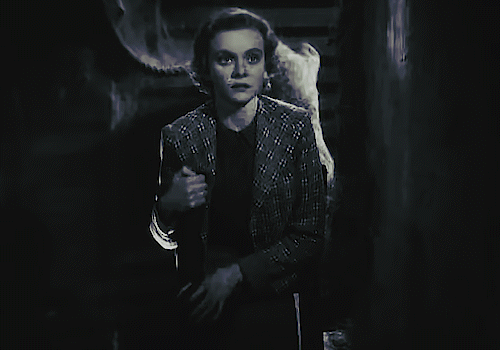

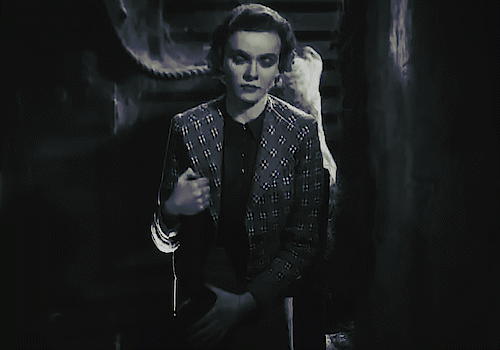

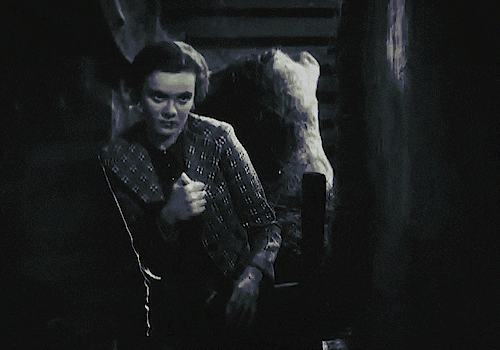
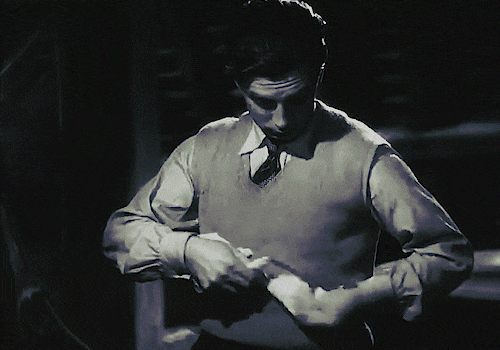
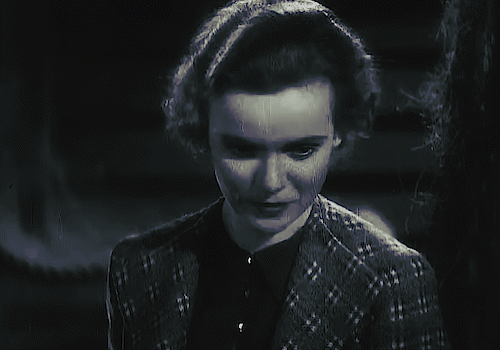

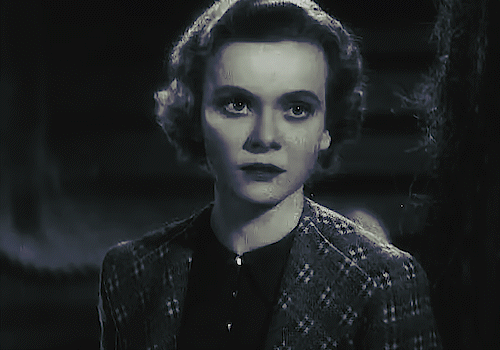


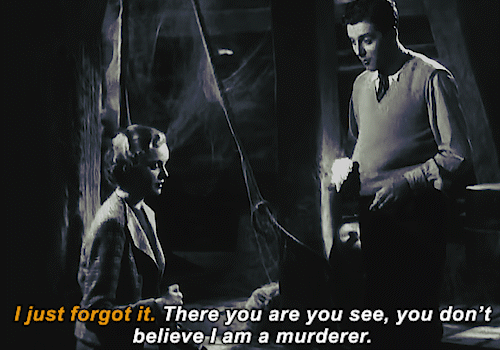
DERRICK DE MARNEY and NOVA PILBEAM in YOUNG AND INNOCENT (1937) | dir. ALFRED HITCHCOCK
#1930's cinema#1930's#1937#young and innocent#derrick de marney#nova pilbeam#filmblr#classicfilmsource#filmedit#filmgifs#classicfilmgifs#british cinema#film#cinema#movies#dramagifs#dramaedit#hitchcock#hitchcockedit#uk cinema#thrillergifs#thrilleredit#crimegifs#crimeedit#mygifs
30 notes
·
View notes
Text
not to support treason on main but i think rishi sunak should be guillotined
#literally fuck this country#what kind of sick fuck makes transphobic comments in front of the mother of an innocent trans girl#who was murdered in a transphobic hatecrime#what the actual fuck#uk politics#brianna ghey#transphobia
37 notes
·
View notes
Text
Five years ago I would not have imagined feeling this ambivalent about Labour winning uk elections after so many years of tory hellishness, and yet here we are
Tories getting slapped to oblivion is great, but a huge chunk of the party that did it have proven themselves over and over again to be racist, transphobic, anti-palestinian, islamophobic, anti-immigration and pro dismantling public services
Rather than actively challenging any of the tories crackpot 'culture wars' talking points, Keith haphazardly leaned into them, giving them further legitimacy. Wittering on about 'stopping the boats' as if it's a normal, sensible proposition (that's centrists for you)
And of course the other reason that the tories got slapped to oblivion is because a huge portion of their voters are racist as hell and voted for reform
This one goes out to every lefty who still says 'it's not race, it's class'; Fuck You
Wake up and recognise that, yes the working classes are routinely fucked over by the state. But if you're from another marginalised community *on top of that*, we'll, the state has many creative ways to ensure that your very existence is precarious
This country has been *loudly* shifting to the far right for years. Black and Asian people *have been dying* because of racist polices on immigration, and structural inequalities that lead to worse outcomes for us.
Disabled people *have been dying* because of inhumane, contradictory, ableist policies that claim to be intended to 'give people the dignity of work' whilst stripping them of the means of working and/or attacking those who cannot work.
Trans people keep being reduced to a 'debate' talking point, riddled with wild nonsense from a platform lead by a random woman who happens to be very rich having written some kids' books. The lived realities of trans peoples lives routinely ignored in favour of supposed concerns for women's rights from people who increasingly seem to have nothing to say about the actual issues affecting all of us. Trans people are dying and we're expected to believe that the biggest threat comes from schools accepting kids for who they say they are, and people using a toilet
And the response to the genocide in Gaza - so hot on the heels of Russia's invasion of Ukraine - speaks volumes. Where the UK opened up the means for Ukranian refugees to seek sanctuary (which was, of course completely reliant on the humanity of the public and not an actual government thing because, you know; tories), the leading UK political parties have studiously ignored the mass murder and displacement of Palestinians by Israel, bombed Yemen for trying to support Gaza and provided military assistance for Israel in their genocidal campaign via base's in cyprus. And continued to arm israel
I've never seen so, so many horribly dismembered and maimed children as I have in the past 9 months. Absolutely horrific images of atrocities being meted out relentlessly day after day on a besieged population (who were betrayed by the British in 1948) who have been forced to film their own genocide because the west, by and large, continues to deny their very existence. And, once again, far-right Israelis have been given platforms to disseminate their lies in the same way Farage, Braverman, Meloni, Le Pen, Wilders, Modi Trump and others have been legitimised
No one should ever ask 'how was the Holocaust allowed to happen' because we live those conditions every day
Keith suspended Labour MPs for merely calling for a ceasefire back in November. How the party has treated Faiza Shaheen, Diane Abbott, Kate Osamor and others is beyond disgusting. The fact the Labour would rather tories - IDS himself no less - took the Chingford seat than let Shaheen win as an independent speaks volumes
To say we've got work to do is an understatement
31 notes
·
View notes
Text

i am once again disappointed but not surprised at the COD fandom only caring about “sensitivity” when it’s convenient for them
#telling people it’s morally wrong to simp for makarov#whilst simping for graves or valeria#or ANY character in this damn series#just shows that you only give a shit about ‘sensitivity’ when it doesn’t inconvenience you#‘but he’s bad :(’ my brother in christ. let’s talk about western militaries#price nikolai and gaz literally kidnapped and tortured an innocent woman and child#the UK and US militaries have DEVASTATED vulnerable countries#y’all wanna talk about sensitivity?? then acknowledge how even the ‘good’ characters like the 141 are shitty!#none of these characters are good people!#i cannot stress this enough. eliminating characters because they’re ‘problematic’ eliminates the entire cast. every single one of them.#MAYBE farah would be safe?? i’m not knowledgeable enough to say for certain. but everyone else— 141. los vaqueros. laswell. alex. nikolai. +#valeria. graves. every last warzone operator. EVERY single character is ‘off-limits’ with that logic.#COD fandom is also horribly racist despite pretending it’s not. notice how people only talk about this when it’s white folks being impacted#no one gave a shit when a middle eastern woman and child were kidnapped and tortured. or when fans were romanticizing cartel violence.#or how the SAS CIA and Delta Force have histories of terrorizing vulnerable people; especially in the middle east and asia#i’ve said it before and i’ll say it again before anyone accuses me of smth false:#sensitivity is important. it can co-exist with letting people enjoy problematic things. the source itself is problematic —#ergo. everything that comes from it (even the ‘good’ things) is as well.#you can’t cherry pick which characters people are allowed to be critical of. you can have your faves and have the ones you dislike#but don’t act like you’re doing something noble when your sensitivity is biased.#sylph.talks
48 notes
·
View notes
Text
Why is nobody talking about what's happening with the met police right now. Chris Kaba, an unarmed Black man, was murdered by an armed officer last year. He was spotted in a car that had connections to a firearms incident, and was shot through the windshield after police had followed him, without ever activating lights or sirens. Kaba was not a suspect in the case, and no firearms were found inside the car. There is no evidence he gave the officer any reason to fire in self defense.
The unnamed officer who shot him is now facing murder charges. 10% of firearms police are now refusing to carry guns in protest- not because they want to prevent future deaths, but because they are afraid of being arrested for 'doing their job'. They are protesting their "rights" to murder without consequence.
The met police are a racist organisation.
Black Londoners, and all Black British people, I wish you and your families safety.
May Chris Kaba rest in peace.
#i heard they were protesting and turning in weapons and said oh cool it's nice to see real change happening- NOPE#they believe that killing innocent Black people is 'doing their job'. what the fuck#uk politics#chris kaba#cw racism#my mom worked for a company that meant she occasionally had to interact with the met and can confirm. they fucking suck#theyre all entitled rude cunts who think they're gods
69 notes
·
View notes
Note
new casey podcast have you seen it
https://m.youtube.com/watch?si=ye8wNfrvaPDjtpDV&v=IuwZN6aP8sg&feature=youtu.be
(link to the podcast) yeah I did, cheers!
there's not that much 'new information' per se within this podcast, though there's a bunch of nice tidbits about teenage casey. what stood out to me is how the framing of his journey to becoming a racer is... well, it's kinda new? it's not exactly surprising, because you could get a lot of this stuff from reading between the lines in his autobiography. the question of 'is this your dream or your parents' dream' is a very common one with athletes, and it's often a thin line... but, y'know, this podcast interview in particular is quite a noticeable shift in how casey himself talks about this issue. it's a shift in how he portrays his 'dream' of becoming a professional rider back when he was formulating his autobiography, versus how he's answering questions in this episode. his autobiography isn't free from criticism of his parents - but casey is always stressing his own desire to race. so you do get stuff like this (from the autobiography):
At this point things were getting serious. Dad used to say, 'If you want to become World Champion you can't be that much better than local competition,' holding his finger and thumb an inch apart. 'You have to be this much better,' he'd say, holding his arms wide open.
Dad confirms this feeling still today: 'I know it's a harsh way to look at things but that's the difference between a champion and the rest. Just look at the careers of Dani Pedrosa and Jorge Lorenzo. Dani had Alberto Puig and Jorge had his old man, both of them hard as nails. If you want to make it to the top I think it takes somebody with an unforgiving view on life to help get you there. So I said those things to Casey, particularly when we went to the UK, because to keep moving up a level he couldn't just be happy with winning a race. If he wasn't winning by a margin that represented his maximum performance then he wasn't showing people how much better he was than the rest.'
There's no denying that Dani, Jorge and I became successful with that kind of upbringing and sometimes you probably do need it. As far as I'm concerned Alberto was nowhere near as tough on Dani as my dad was on me or Jorge's dad was on him. That kind of intensity and expectation puts a lot of extra pressure on a father-son relationship that isn't always healthy. We definitely had our moments and there were a few major blow-ups to come. But at the time, rightly or wrongly, it was proving to be a good system for us and I was eager to continue impressing my dad and others with my performances on the track.
(quick reminder, jorge's review of his father's style of parenting was describing him as "a kind of hitler")
but in general the emphasis is very much on how much casey enjoyed racing, on how single-minded casey was when it came to racing. he might have been isolated by his racing (again this is from the autobiography, in the context of discussing being bullied by kids in school until he got 'protection' from his dirt track friends):
School life was a whole lot better after that but I still hated it. All my real friends were from dirt-track; they were the only people I had anything in common with.
and he's talked about how other parents misinterpreted his shyness as him not actually wanting to race, which meant they were judging casey's parents as a result (autobiography):
Mum tells me that the other parents thought she and Dad were awful because I cried as I lined up on the start line. She remembers: 'I was putting his gloves on his hands and pushing his helmet over his head. The thing was, I knew Casey wasn't crying because he didn't want to ride or because he was scared. He just didn't like the attention of being stared at by all these people!'
but like. overall racing for him was still something he portrayed as a very positive aspect of his childhood. something he always clung onto, something that was his choice to pursue
so... let's play compare and contrast with some specific passages of the autobiography and this podcast, you decide for yourself. take this from his autobiography:
After I started winning more times than not, and it was obvious my passion for bikes wasn't wavering, Mum and Dad decided that seeking out sponsors could be a great idea to help offset some of the costs of travelling to meets and keeping the bikes in good order.
and here, in a longer excerpt about what a sickly child casey was, what his mother said (autobiography):
'They tested him for cystic fibrosis and he was on all kinds of medication; you name it, he was on it. But Casey still raced, we couldn't stop him.'
I know I was sick but Mum was right, I wasn't going to let that stop me.
versus this from the podcast, when he's responding to a completely open question about how he got into riding:
To be honest, I don't know if I was allowed to have any other attraction to be honest. I think it was, you know, you're going to be a bike rider from when I was a very very young age - and I'm not the only one to think that. I think my parents have stated that enough times to certain people and you know I was sort of pushed in that direction. My elder sister who's six and a half years older than me, she actually raced a little bit of dirt bikes and dirt track before I was born and when I was very young, so it was sort of a natural progression to go and do a little bit more of that and I think because at the time road racing was a lot more similar to dirt track. That was our sort of way in.
this was one of the very first questions in the interview, it basically just consisted of asking casey how he got into biking in the first place - whether it had come through his family or whatever. casey chose to take the response in that direction... it's not an answer that is just about his own internal passion, how he loved riding the second he touched a bike, how he loved it throughout his childhood etc etc (which is how it's framed in the autobiography) - but instead he says he wasn't allowed to do anything else. he says that he was pushed in that direction, that his parents have openly said as much to others. that he feels vindicated in the belief he was never given another choice
let's play another round. here from the autobiography:
Mum and Dad used to stand at the side for hours on end watching me practise at different tracks. They'd sometimes clock laps with a stopwatch as I went round and round. Other parents couldn't see the point in taking it so seriously but they didn't realise it was what I wanted. I was having fun. Working out how to go faster was how I got my kicks and I couldn't stop until I had taken a tenth or two of a second off my best time on any day. If another kid came out onto the track with me I would be all over them, practising passing them in different ways and in different corners, but most of the time they avoided riding with me and I would be out there on my own, racing the clock.
and this (autobiography):
I enjoyed racing so much that even when I was at home riding on my own I would set up different track configurations to challenge myself. I'd find myself a rock here, a tree there, a gatepost over there and maybe move a branch and that would be my track.
versus here, in the podcast:
Q: And did you realise at the time that you were - not groomed, is not the word but well you were being groomed to be a professional motorcycle racer, or obviously that was your only one reference point, that was the norm. Did that just feel the norm or did you think actually this feels a bit intense or how did you feel about it?
A: I think it's hard, it's not until I sort of reached my mid teens where I started to have a bit of a reality check on what I was actually doing. Before then, you know I was competitive. I'm not as competitive as people think, I'm a lot more competitive internally rather than externally versus other people. I always challenge myself to things, so all those younger years was just getting the job done that I was expected to do. I enjoyed winning, I loved it, but you know I enjoyed perfect laps, perfect races, as close as I could get to that and you know from a young age I always sort of challenged myself constantly to be better. So I didn't just win races, I tried to win them - you know, if I won races by five seconds in a [...] race I'd try and win, you know I'd try and get to double that by the end of the day if I could. So you know that always kept me sharp and it stopped me from being sort of, you know, complacent in the position I was at. And it wasn't until sort of you know 16, 17, 18 that reality kicked in. I'd had a couple years road racing in the UK and Spain, been rather successful and then you get to world championships and you know maybe an engineer that was sort of - didn't have your best interests at hear. And, you know, I nearly finished my career right there after my first year of world championships just because of the reality of how hard it was in comparison to everything else I'd experienced up to that point. And, you know, it was a real reality check for me and I think it was then that I started to - you know consider everything around me and consider how and why I got to the position that I was in and that's when the mind started to change a little bit and realise that you know I really was being groomed my whole life just to sort of be here and be put on a track and try and win. And, you know, that was my seemingly most of my existence.
in all the excerpts, he stresses how much he enjoys his perfect laps, how much he enjoys riding, how there is genuine passion there, how dedicated he is to this pursuit... but then in the podcast, he's adding something else - how he'd been groomed his whole life into that role of 'professional bike racer'. that it was only in his late teens (when he was in 125cc/250cc) where he had this moment of 'man I never really had a choice in all this'
and another round. here's him talking in the autobiography about how all the money he got through racing went back into racing - but it was fine because it was the only thing he cared about anyway:
I don't remember seeing any of the money I earned because it all went back into my racing, although I guess at the time that's all I really cared about anyway. I didn't know anything else. Mum and Dad always said to me: 'If you put in the effort, we'll put in the effort.'
and here in the autobiography on how he just wanted to ride all day:
I couldn't ride my bike all day, though, as much as I would have liked to.
and him talking in the autobiography about his parents encouraging him and his sister to 'chase their dreams':
Mum and Dad encouraged both Kelly and me to follow our passions and work hard to chase our dreams. That might sound strange when you are talking about a seven-year-old but I don't think you are never too young to know that if you want something you have to earn it.
versus this in the podcast:
Q: And I've never asked you this before, but did you want to?
A: Um... I think I'd been convinced of a dream I suppose. You know, yes I loved riding bikes and you know I really did enjoy racing... but there was lots of other things that I - I really enjoyed as well but just never had the opportunity or never was allowed to do anything else, so... You know, motorbikes for our budget everything fortunately dirt track was probably the cheapest way that you could go motorbike racing. You could survive on very very little in dirt track and show your potential in other ways. You know, yes, having good bikes and good tyres and all that sort of thing made a difference but it wasn't the be all end all, you could always make a difference in other ways, so... I think it was, you know - the best thing we could have done, racing through that. Like I said I enjoyed it, it wasn't until late teens, early 20s where I sort of was like, I don't know if I would have been a bike racer had I actually had a choice.
was riding really all he cared about? or were there other things he was interested in, things he just never had the opportunity to pursue? things he wasn't allowed to pursue? from the autobiography, you get the sense that his parents always deliberately portrayed it as casey's dream, something he was expected to work hard for in order to be allowed to fulfil. in the podcast, casey says it was a dream he was 'convinced' of. without wanting to speak too much on the specifics of this parenting relationship we only have limited knowledge of, this kinda does all sound like athlete parent 101: getting it into their kids' heads that this is the dream of the child, not the parent, before holding it over them when they fail to perform when their parents have invested so so much in their child's success. casey's family was financially completely dependent on his racing results when they moved to the uk - he was fourteen at the time. he was painfully conscious of his parents' 'sacrifice' to make 'his dream' possible. can you imagine what kind of pressure that must be for a teenager?
to be clear, this isn't supposed to be a gotcha, I'm not trying to uncover contradictions between what casey said back then and what he's saying now. obviously, this is all very... thorny, complicated stuff, and casey has had to figure out for himself how he feels about it, how he feels about how his parents approached his upbringing. but it is worth pointing out that this isn't necessarily just a question of his feelings changing over time - if the internal timeline he provides in the podcast is correct, he was really having that realisation in his late teens, early 20s, so on the verge of joining the premier class. that is when he says he had the thought "I don't know if I would have been a bike racer had I actually had a choice"... which is a pretty major admission, you have to say, especially given how rough those premier class years often ended up being on him. but then that realisation would have already come years and years before he wrote his autobiography, it would've been something he carried with him for most of his career. given that, you do look at his autobiography and think that he did make the decision to frame things pretty differently back then, that he decided to exclude certain things from his narrative. if this really is already something that's been festering within him for years, if he does feel like he wants to be a bit more open about all of that now than back then... well, hopefully it shows he's been able to work through all of it a bit more in the intervening years
(this is somehow an even thornier topic than his relationship with parents, but relatedly there is a bit of a discrepancy between how bullish he is in his autobiography about how mentally unaffected he was by his results, versus how he's since opened up since then about his anxiety. again, I want to stress, this is not a gotcha, he's under no obligation to share this stuff with the world - especially given the amount of discourse during his career about his supposed 'mental weakness'. it is still important in understanding him, though, how he consciously decided to tell his own story in the autobiography and how he's somewhat changed his approach in the subsequent years)
this is the rest of his answer to that podcast question I relayed above:
But at the same time you know I felt that no matter what I would have done, I sort of have a - my mentality of self-punishment, you know, of never being good enough that always drove me to try and be better and any single thing that I did, I didn't like it when I wasn't not perfect. I don't believe in the word perfect but I really didn't enjoy when I wasn't, you know, in my own terms considered a good enough level at anything I did so I would always sort of try to get up as high as I could regardless of what for.
at which point hodgson says exactly what I was thinking and goes 'god what a line' about the "mentality of self-punishment" thing. it is one hell of a line!
what's really interesting about this podcast is how these two big themes of 'this wasn't my choice' and 'self-punishment' end up kinda being linked together when casey talks about how the motogp world reacted to him... so again I'm gonna quickly toss in a bit from the autobiography (where he's talking about casual motorcycling events he went to as a kid), because it does read similarly in how for him the joy and competitive aspects of riding are closely linked:
It was a competition but it wasn't highly competitive; it was just for fun, really. Of course, I didn't see it that way, though, and I had dirt and stones flying everywhere. I don't think anyone expected the park to be shredded like it was. When I was on my bike, if I wasn't competing to my maximum level then I wasn't having as much fun.
and back to the podcast:
And also because people truly didn't understand me, that I'm not there just to enjoy the racing. As we're explaining, before that, you know it was sort of a road paved for me... And so the results were all important, not the enjoyment of it. And then you cop the flak for everything you do. I'm also very self-punishing, so it was kind of a - just a lose lose lose and it was all very very heavy on myself, so... It, you know, it took me till my later years to realise I could take the pressure off myself a little bit and go look you've done all the work you've done everything you can, you got to be proud of what you've done, so... Not necessarily go out there and enjoy it, because I don't believe you should just be going out in a sport where you're paid as much as we are expect to get results and just - you know - oh I'm just going to go and have fun it's like... yeah, nah, if you're just going to go and have fun then you're not putting in the work. And that's when we see inconsistencies etc. So I was very very harsh on myself and so even when I won races, if I made mistakes or I wasn't happy with the way I rode, well then yeah I'm happy I won but there's work to do. There was more to get out of myself and so that's where I copped a lot of bad... um, let's say bad press because of those kind of things and then they sort of attack you even more because they didn't like the fact that you didn't celebrate these wins like they wanted you to they expect you to I suppose treat every victory like almost a championship and you know it's not that I expected these wins but I expected more of myself and therefore maybe I didn't celebrate them as much as you know other people do.
kind of brings together a lot of different things, doesn't it? this whole profession was a path that was chosen for him... which he links here to how the results were 'all important' for him, how it just couldn't ever be about enjoyment. he always punished himself for his mistakes, he was under constant pressure, which also affected how he communicated with the outside world... he was so committed to self-flagellation that he made it tough for himself to actually celebrate his victories, which in turn wasn't appreciated by the fans or the press. so on the one hand, casey's obviously still not particularly thrilled about how much of a hard time he was given over his particular approach to being a rider. but on the other hand, he's also describing how all of this can be traced back to how becoming a rider was never actually his 'choice'. he's detailed his perfectionism before, including in his autobiography, including in discussing his anxiety disorder more recently - but this is explicitly establishing that link between the pressure he'd felt during his childhood to how he'd been pushed into this direction to how he then had to perform. he couldn't afford to be anything less than perfect, so he wasn't, and at times he made his own life even tougher as a result of his own exacting standards. this just wasn't stuff he's said in such straightforward, explicit terms before... and now he is
my general thing with casey is that his reputation as a straight shooter or whatever means people aren't really paying enough attention to how he's telling his own story. like, I kinda feel the perception is 'oh he used to be more closed off because the media ragged on him but since retirement he's been able to tell it like it really is' or whatever. and I'm not saying that's necessarily wrong, but it's not quite as simple as that. because he's not a natural at dealing with the media, he's put a fair bit of thought into how to communicate better with them (which he does also say in the podcast), and he's explicitly acknowledged this is something he looked to valentino for in order to learn how to better handle. because casey has felt misunderstood for quite a long time, he's quite invested in selling his story in certain ways - and it's interesting how what he's chosen to reveal or emphasise or conceal or downplay has changed over time. which means there will be plenty of slight discrepancies that pop up over time that will be as revealing as anything he explicitly says... and it tells you something, what his own idea of what 'his story' is at any given time. this podcast isn't just interesting as a sort of, y'know, one to one, 'this is casey telling the truth' or whatever - it's reflecting where his mind is at currently, what he wants to share and in what way, and how that compares to his past outlook. the framing of his childhood was really something that popped out about this particular interview... it's not like it's exactly surprising that this is how he feels, but more that he decided to say all of this so openly. some pretty heavy stuff in there! hope the years really have helped him... man, I don't know. figure it all out, for himself. something like that
#hodgson is a far better interview than that bloody australian who keeps getting retired riders on his show#on a one man crusade against that youtube channel after the sete episode. listened to it at 1.5 speed but it was still horrendous#idk whether they screened potential q's but if not then hodgson followed up well on that initial casey response about not having a choice#icl I thought this would be a ducati puff piece but they do discuss self loathing for like half an hour#I do treat all athletes' parents with a base level of suspicion. guilty until proven innocent. don't trust any of them#ducati uk posted it on twitter right before I went grocery shopping so I was like 'oh well I'll put it on! that'll be nice!'#and it ended up kinda depressing me icl. super talented at the bike anything thing I get it but low key he should've done something else#I don't follow ducati uk on twitter... I did add them to my motogp list when I saw the podcast announcement. just to be clear#//#casey stoner#cs27#batsplat responds#still don't entirely get what the concept for the podcast is. does he just chat to people related to ducati. I mean I liked it but#fifty minutes in they go 'yeah remember when you won a title with ducati. that was nice wasn't it'#going on the ducati podast complaining about how new tech has made racing worse like 'we're all trying to find the guy who did this'#heretic tag
19 notes
·
View notes
Text

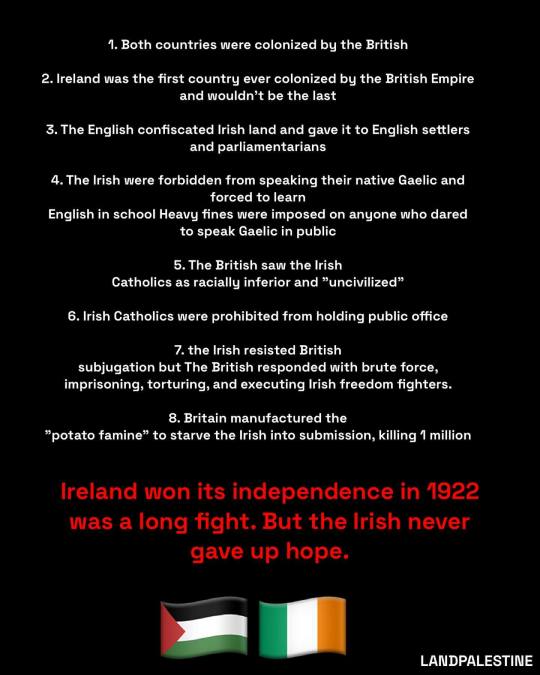
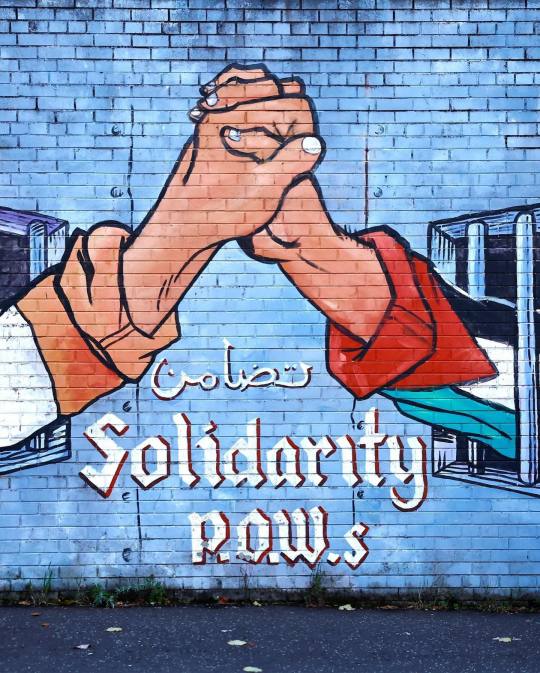

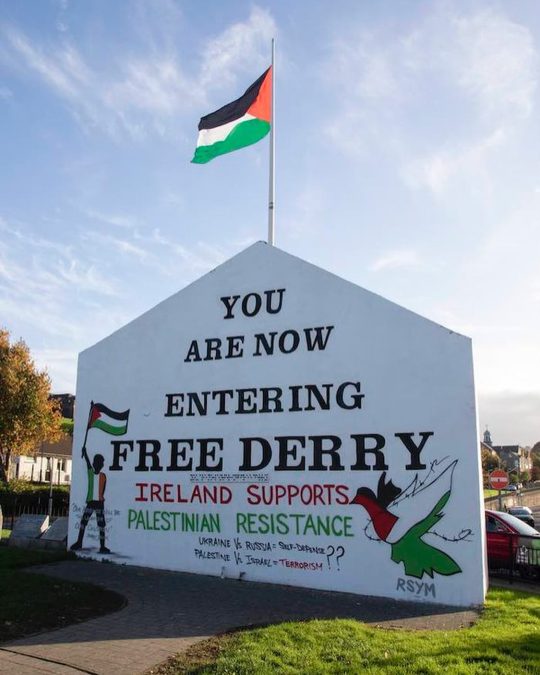
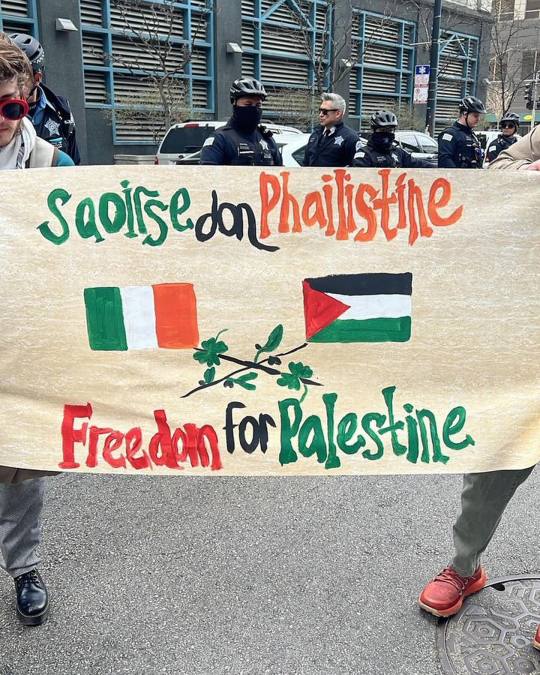
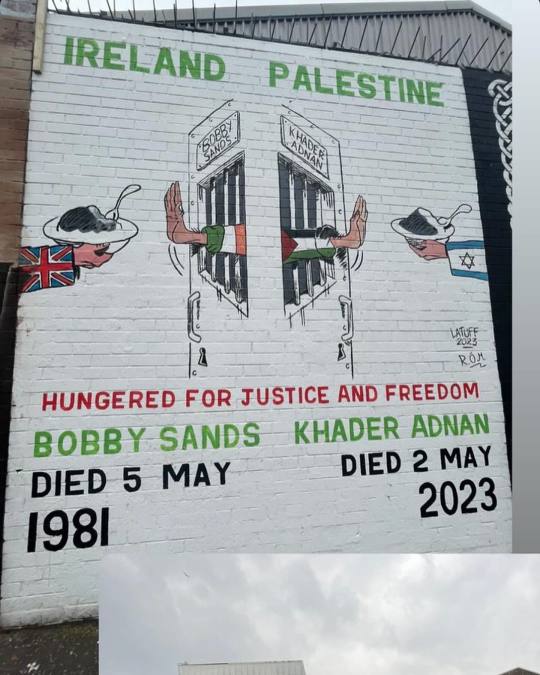
#ireland#irish solidarity with palestine#irish independence#british colonialism#apartheid#save palestine#ethnic cleansing#israel is an apartheid state#seek truth#free palestine 🇵🇸#genocide#illegal occupation#israel is committing genocide#israeli war crimes#stolen cultures#hunger strike#palestinian resistance#ireland stands with palestine#solidarity#freedom for palestine#let Palestine live#the UK is complicit in genocide war crimes and starvation of countless innocent Palestinians#history will remember#please share#from the river to the sea palestine will be free
27 notes
·
View notes
Text
i think an incredibly funny part of the aiichi dynamic is that at least one of them has to be traumatized and/or possess incredible worldly exhaustion in order to even consider the other as a romantic love interest
like they need to go through decades and time loops of war and hopelessness and death and destruction in order to be like huh maybe this guy isn't so bad
of course this doesnt go for every fic (academy blues my beloved) but. a lot of them do and it's SO funny
#aiichi#and the award for the worst ship ever is.......#aiichi and monipai are like the two ships you would not catch me DEAD admitting i like in real life#i cant imagine how it is for the shippers on twitter dawg#the p*do accusations must be absolutely insane on there#like no!! im not into the super seme rich sugar daddy aizen and innocent baby uke ichigo dynamic!! that's weird!!#but them being besties after fighting for their lives together and learning to depend on each other#and aizen being fond of ichigo but trying to pretend he's not because mwahaha he's so evil and above it all#and ichigo not trusting aizen but finding himself rooting for aizen and discovering he's not bad company#like. cmon#and if it's in canon then ichigo being a true punk and siding with aizen because fuck soul society's cringe ass hierarchy#(academy blues my beloved)#i should read it again tbh#and forever with you never sounded so stupid#ahhh but it should be reserved for like a once every 5 years thing so that i totally forget everything#and can relive the absolute joy that is that fic series#bleach
78 notes
·
View notes
Text

An English couple sleeps in a Morrison shelter at the height of WWII
#Britain at war#Morrison shelter#The Blitz#WWII#night raids#innocent civilians#Luftwaffe#Blitzkrieg#London#UK#1941
25 notes
·
View notes